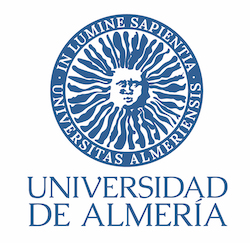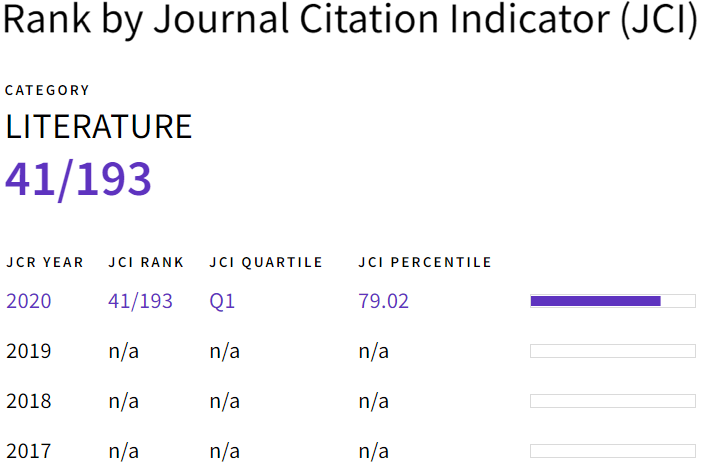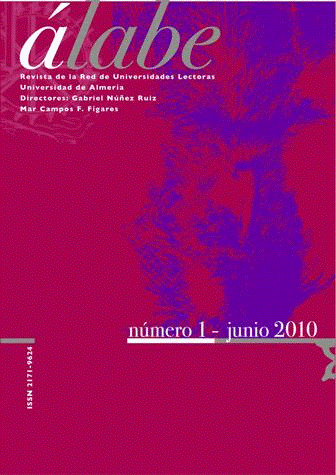El proceso de escritura cientÃfica en la formación doctoral: una aproximación narrativa
Resumen
Palabras clave
Texto completo:
PDFReferencias
Bandenhorst, C., & Guerin, C. (2016). Post/Graduate Research Literacies and Writing Pedagogies. En C. Bandenhorst & C. Guerin (Eds.), Research Literacies and Writing Pedagogies for Masters and Doctoral Writers (Vol. 31, Número November 2015, pp. 3–28). Brill. https://doi.org/10.1163/9789004304338_002
Carrera Hernández, C., Madrigal Luna, J., & Lara GarcÃa, Y. I. (2017). La formación de investigadores en posgrado (Una reflexión curricular). Boletin Virtual, 6–8, 53–72. https://dialnet.unirioja.es/descarga/articulo/6245323.pdf
Castro Azuara, M. C., & Sánchez Camargo, M. (2016). La formación de investigadores en el área de humanidades: Los retos de la construcción de la voz autoral en la escritura de la tesis de doctorado. Revista Signos, 49(S1), 30–51. https://doi.org/10.4067/S0718-09342016000400003
Chase, S. (2017). Narrative Inquiry: Toward Theoretical and Methodological Maturity. En N. K. Denzin & Y. S. Lincoln (Eds.), The Sage Handbook of Qualitative Research (pp. 946–970). SAGE Publications, Inc.
Clandinin, J., & Caine, V. (2016). Narrative Inquiry. En L. Given (Ed.), The SAGE Encyclopedia of Qualitative Research Methods Narrative Inquiry (pp. 542–545). SAGE Publications, Inc. https://doi.org/10.4135/9781412963909
Coulter, C. a, & Smith, M. L. (2009). Discourse on Narrative Research. Educational Researcher, 38(8), 577–590. https://doi.org/10.3102/0013189X09353787
Creswell, J. W., & Poth, C. N. (2018). Qualitative Inquiry and Research Design Choosing among Five Approaches. SAGE Publications, Inc.
Czarniawska, B. (2004). Narratives in Social Science Research. En Narratives in Social Science Research. SAGE Publications, Inc. https://doi.org/10.4135/9781849209502
Emig, J., Composition, S. C., May, N., & Emig, J. (2016). Writing as a Mode of Learning Published by : National Council of Teachers of English Linked references are available on JSTOR for this article : hWriting as a [ Mode of Learning. 28(2), 122–128. https://doi.org/10.2307/356095
Fernández Fastuca, L., & Wainerman, C. (2015). La dirección de tesis de doctorado: ¿una práctica pedagógica? Perfiles educativos, 37(148), 156–171. http://www.scielo.org.mx/scielo.php?script=sci_arttext&pid=S0185-26982015000200010
Flower, L., & Hayes, J. R. (1981). A Cognitive Process Theory of Writing. College Composition and Communication, 32(4), 365–387. https://doi.org/10.2307/356600
Flower, L., & Hayes, J. R. (1996). Textos en contexto. Lectura y vida., 2–18. https://www.researchgate.net/profile/Linda_Flower/publication/267779388_TEXTOS_EN_CONTEXTO/links/55cb68f308aeb975674c7927.pdf
Garcés-Prettel, M. E., & Santoya-Montes, Y. E. (2013). La formación doctoral: expectativas y retos desde el contexto colombiano. Educación y Educadores, 16(2), 283–294. https://doi.org/10.5294/edu.2013.16.2.5
GarcÃa Del Junco, C. J., & Castellanos Verdugo, C. M. (2007). La difusión de las investigaciones y el formato IMRYD: Una pesquisa a propósito de la lectura crÃtica de los artÃculos cientÃficos. (Spanish). Acimed, 15(1), 1. http://search.ebscohost.com/login.aspx?direct=true&db=zbh&AN=24120343〈=es&site=ehost-live
Gastel, B., & Day, R. A. (2016). How to Write and Publish a Scientific Paper (5th ed.). Greenwood.
Given, L. (2012). Narrative Interview. The SAGE Encyclopedia of Qualitative Research Methods, 545–546. https://doi.org/10.4135/9781412963909.n277
Hayes, J. R. (1996). A New Framework for Understanding Cognition and Affect in Writing. En C. Levy & S. Ransdell (Eds.), The science of writing: Theories, methods, individual differences, and applications (pp. 1–27). Lawrence Erlbaum.
Hayes, J. R., & Flower, L. (1980). Identifying the organiszation of writing processes. Cognitive processes in writing, 3–30.
Lam, C. K. C., Hoang, C. H., Lau, R. W. K., de Caux, B., Chen, Y., Tan, Q. Q., Pretorius, L., Cahusac de Caux, B., Chen, Y., Tan, Q. Q., Pretorius, L., Cahusac de Caux, B., Chen, Y., Tan, Q. Q., & Pretorius, L. (2019). Experiential learning in doctoral training programmes: fostering personal epistemology through collaboration. Studies in Continuing Education, 41(1), 111–128. https://doi.org/10.1080/0158037X.2018.1482863
Lei, J., & Hu, G. (2019). Doctoral candidates’ dual role as student and expert scholarly writer: An activity theory perspective. English for Specific Purposes, 54, 62–74. https://doi.org/10.1016/j.esp.2018.12.003
Lillis, T., & Maybin, J. (2017). Introduction: The dynamics of textual trajectories in professional and workplace practice. Text and Talk, 37(4), 409–414. https://doi.org/10.1515/text-2017-0017
MacKenzie, I. S. (2015). Writing and Publishing a Research Paper. En Human-computer Interaction. https://doi.org/10.1016/b978-0-12-405865-1.00008-x
MartÃnez Amilpa, D. (2018). La formación de investigadores en los programas de doctorado de la Universidad Veracruzana Doctorado Educación y Sociedad [Universitat de Barcelona]. https://www.tdx.cat/bitstream/handle/10803/667009/DMA_TESIS.pdf?sequence=1&isAllowed=y
Matarese, V. (2012). Using strategic, critical reading of research papers to teach scientific writing: The reading-research-writing continuum. En Supporting Research Writing: Roles and Challenges in Multilingual Settings. Elsevier Inc. https://doi.org/10.1016/B978-1-84334-666-1.50005-9
Moreno Bayardo, M. G. (2007). Experiencias de formación y formadores en programas de doctorado en educación. Revista mexicana de investigación educativa, 12(33), 561–580. http://www.scielo.org.mx/scielo.php?pid=S1405-66662007000200561&script=sci_arttext
Moreno Bayardo, M. G. (2011). La formación de investigadores como elemento para la consolidación de la investigación en la universidad. Revista de la Educación Superior, XL (2)(158), 59–78. http://www.scielo.org.mx/scielo.php?script=sci_arttext&pid=S0185-27602011000200004
Moreno Bayardo, M. G. (2009). La aportación de los doctorados a la formación de investigadores en educación. X Congreso Nacional de Investigación Educativa, e10. http://www.comie.org.mx/congreso/memoriaelectronica/v10/pdf/area_tematica_11/ponencias/0005-F.pdf
O’Connor, M. (2003). Writing successfully in science (Second Edi). E & FN Spon.
Parija, S. C., & Kate, V. (2017). Writing and Publishing a Scientific Research Paper. Springer. https://doi.org/10.1007/978-981-10-4720-6
Quiles-Fernández, E., Fernández, J. H., & Fajardo, R. H. (2018). Learning about educational research: A community of knowledge towards the writing developed during our doctoral work. Qualitative Research in Education, 7(3), 241–264. https://doi.org/10.17583/qre.2018.3482
Radloff, A., & De La Harpe, B. (2000). Helping students develop their writing skills - a resource for lecturers. Flexible Learning for a Flexible Society. Higher Education Research and Development in South Asia Conference. Toowoomba, 1–32.
Rogers, E. M. (2003). Diffusion of innovations (Fifth). Free Press.
Saeed, R., Rezaei, S., & Seyri, H. (2019). Iranian doctoral students’ perceptions of publication in English: Motives, hurdles, and strategies. Journal of Applied Research in Higher Education, 11(4), 941–954. https://doi.org/10.1108/JARHE-02-2019-0040
Singh, V., & Mayer, P. (2014). Scientific writing: Strategies and tools for students and advisors. Biochemistry and Molecular Biology Education, 42(5), 405–413. https://doi.org/10.1002/bmb.20815
Wisker, G. (2015). Developing doctoral authors: engaging with theoretical perspectives through the literature review. Innovations in Education and Teaching International, 52(1), 64–74. https://doi.org/10.1080/14703297.2014.981841
Wortham, S. E. F. (2001). Narratives in Action: A Strategy for Research and Analysis. Teachers College Press.
DOI: http://dx.doi.org/10.15645/Alabe2022.25.7


































